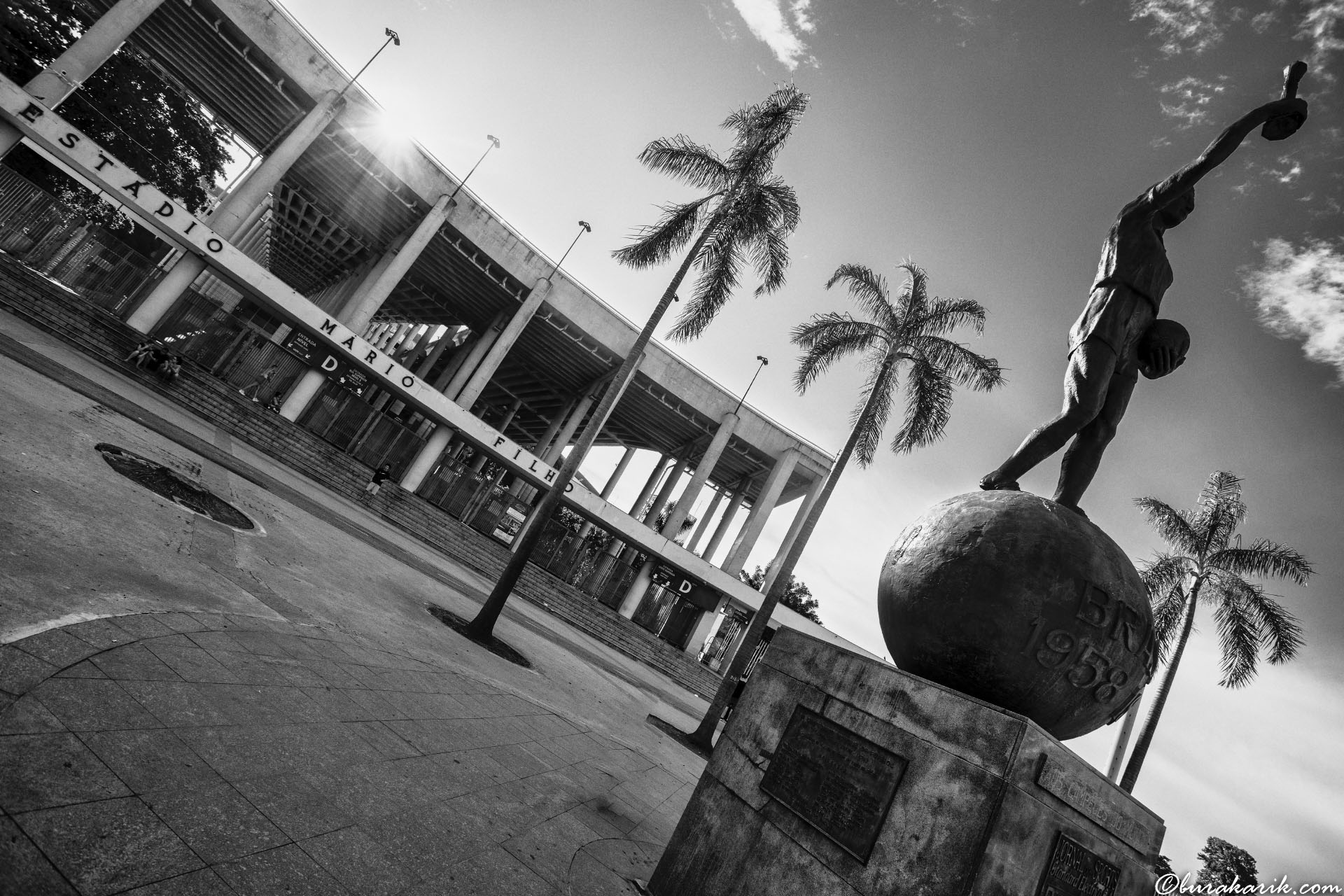The Maracanã Stadium in Rio de Janeiro, Brazil, is one of the most iconic and historic football stadiums in the world. The stadium has a rich history and has hosted some of the most memorable moments in football history, including the 1950 World Cup final, where Brazil lost to Uruguay.
Located in front of the stadium is a bronze statue of the legendary Brazilian footballer, Pelé. The statue was erected in 2014 to commemorate the 50th anniversary of Brazil's 1964 World Cup victory. Pelé, whose real name is Edson Arantes do Nascimento, is widely regarded as one of the greatest football players of all time and a national hero in Brazil.
The statue depicts Pelé in his classic pose, with his arms raised in celebration after scoring a goal. The statue is 1.93 meters tall and weighs 300 kilograms, and it stands on a pedestal that is inscribed with some of Pelé's career highlights, including his three World Cup victories with Brazil.
The statue has become a popular tourist attraction and a symbol of Brazilian football culture. It is located in a prominent spot in front of the Maracanã Stadium, and visitors can take photos with the statue and learn more about Pelé's life and career at a nearby museum.
Overall, the Maracanã Stadium and the Pelé statue in front of it are must-visit destinations for anyone interested in football and Brazilian culture.




